 Petzlover
Petzlover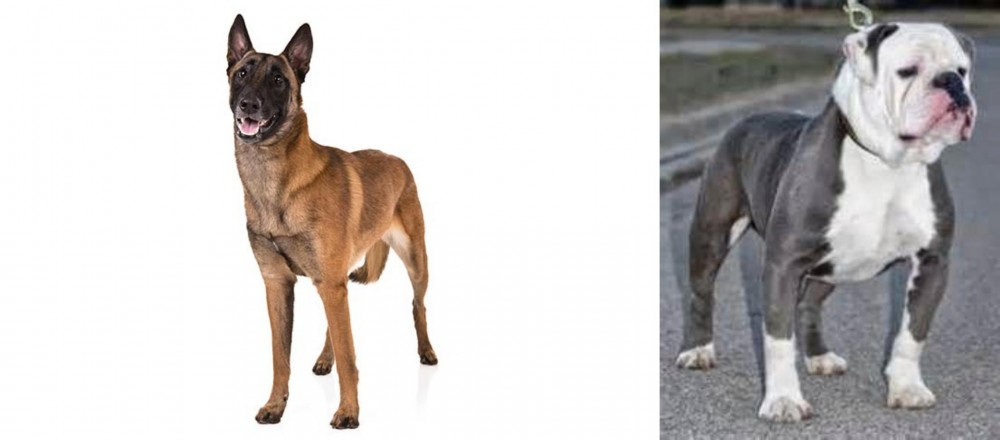 Belgian Shepherd Dog (Malinois) is originated from Belgium but Old English Bulldog is originated from United Kingdom. Belgian Shepherd Dog (Malinois) may grow 26 cm / 11 inches higher than Old English Bulldog. Belgian Shepherd Dog (Malinois) may weigh 12 kg / 27 pounds more than Old English Bulldog. Both Belgian Shepherd Dog (Malinois) and Old English Bulldog has same life span. Both Belgian Shepherd Dog (Malinois) and Old English Bulldog has same litter size. Both Belgian Shepherd Dog (Malinois) and Old English Bulldog requires Low Maintenance.
Belgian Shepherd Dog (Malinois) is originated from Belgium but Old English Bulldog is originated from United Kingdom. Belgian Shepherd Dog (Malinois) may grow 26 cm / 11 inches higher than Old English Bulldog. Belgian Shepherd Dog (Malinois) may weigh 12 kg / 27 pounds more than Old English Bulldog. Both Belgian Shepherd Dog (Malinois) and Old English Bulldog has same life span. Both Belgian Shepherd Dog (Malinois) and Old English Bulldog has same litter size. Both Belgian Shepherd Dog (Malinois) and Old English Bulldog requires Low Maintenance.
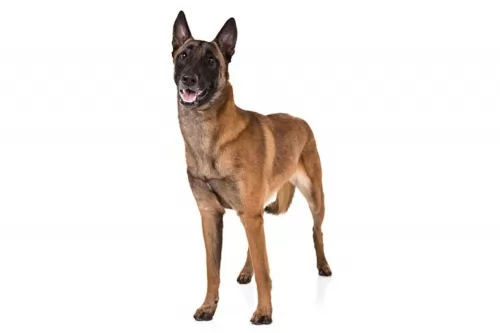 The Belgian Malinois is one of 4 Belgian Shepherd varieties. The dogs were developed- and hail from Belguim. The Malinois has a short, fawn colored coat. The American Kennel Club recognizes that the Malinois is a separate breed from the other 3 varieties. It was in 1892 that Professor Reul wrote the first Belgian Shepherd Dog standard, recognizing 3 varieties – dogs with short coats, dogs with long coats and dogs with rough coats.
The Belgian Malinois is one of 4 Belgian Shepherd varieties. The dogs were developed- and hail from Belguim. The Malinois has a short, fawn colored coat. The American Kennel Club recognizes that the Malinois is a separate breed from the other 3 varieties. It was in 1892 that Professor Reul wrote the first Belgian Shepherd Dog standard, recognizing 3 varieties – dogs with short coats, dogs with long coats and dogs with rough coats.
Today's Malinois goes back to a breeding pair owned by Adrien Janssens. It was in 1885 that he bought a fawn, rough-haired dog, breeding the dog with a short-haired dog named Lise de Laeken. After other breedings, the two dogs were recognized as ancestors of the modern Belgian Shepherd Dogs.
The city of Malines formed a club for the promotion of these fawn short hairs and the name Malinois became synonymous with them. In March 1992, the American Belgian Malinois Club received AKC parent club status.
 This is an extinct dog breed. It is believed that the dog came from ancient dogs such as the old Mastiff. The Old English Bulldog was the original English Bulldog but quite different from the modern variety, with longer legs as well as a longer muzzle and more aggressive.
This is an extinct dog breed. It is believed that the dog came from ancient dogs such as the old Mastiff. The Old English Bulldog was the original English Bulldog but quite different from the modern variety, with longer legs as well as a longer muzzle and more aggressive.
It is believed that the Old English Bulldog was the ancestor to many breeds and there have been efforts to recreate the Old English Bulldog, bringing about quite a few new Bulldog breeds. Records are actually unclear as to its origins and when you read up on its ancestry, you see that a lot of the information is conflicting.
A number of breeders have attempted to recreate this extinct breed with some success, but it must be borne in mind that these recreations aren’t the Old English Bulldog, as the genetics of it are extinct.
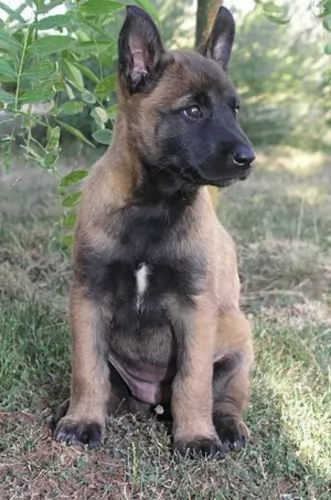 The Malinois is a medium-size Belgian shepherd dog. People sometimes mistake them for the German Shepherd as they are fairly similar to look at. The Malinois however is a smaller, lighter boned dog with naturally upright ears and a black-masked face. He is shorthaired and fawn-colored with black tips on the hairs, although other colors are brown or red too. He is an intelligent and active dog, always having been used for herding-, police- and rescue work.
The Malinois is a medium-size Belgian shepherd dog. People sometimes mistake them for the German Shepherd as they are fairly similar to look at. The Malinois however is a smaller, lighter boned dog with naturally upright ears and a black-masked face. He is shorthaired and fawn-colored with black tips on the hairs, although other colors are brown or red too. He is an intelligent and active dog, always having been used for herding-, police- and rescue work.
You’ll find the Malinois somewhat unpredictable as some are friendly and confident while other can be shy and withdrawn around strangers. This is a dog who loves to be around his human family, but to bring out the best in him, training and socialization classes will be necessary. Well-socialized Malinois are always good with children and other pets, more so if they’ve been raised with them.
 This dog is extinct but he used to be a fairly broadly set, muscular dog, taller than the bulldog of today.
This dog is extinct but he used to be a fairly broadly set, muscular dog, taller than the bulldog of today.
The average height of this dog was 36 – 40cm, weighing in at about 18 to 22kg. One of the dog’s more noticeable characteristics was his lower jaw that projected quite a bit in front of the upper jaw. The dog was deep-chested, the head broad and the nose and muzzle short.
The breed was developed for bull baiting, but in England, with the adoption of the Act of cruelty to animals, there was a decline in the interest for the dog, leading to it becoming extinct. There are old paintings from the 1800s and one such painting, Crib and Rosa, gives an idea of the form and size of the Old English Bulldog.
The regular English Bulldog today is often confused with the Old English Bulldog but it is a far sweeter breed than the Old English Bulldog. It is believed that the Old English Bulldog was an aggressive dog, bred to be this way because of his role in bull baiting.
As a pet though, brought up as a companion, he no doubt would have made a loving, loyal pet.
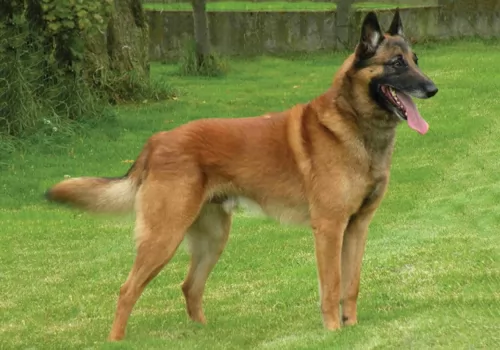 The Belgian Malinois makes a wonderful guard dog and he works hard to ensure that his human family, whom he adores, are well protected under his watch. They’re such intelligent dogs too that you may feel inclined to pass over some of your chores to him.
The Belgian Malinois makes a wonderful guard dog and he works hard to ensure that his human family, whom he adores, are well protected under his watch. They’re such intelligent dogs too that you may feel inclined to pass over some of your chores to him.
He responds well to training, and to get the best from this breed, start with training and socialization as soon as you bring your puppy home.
Socialization is excellent as it introduces your puppy to different people, animals as well as situations.
He is an adaptable dog and can live in an apartment if he is well exercised. He can be your devoted and loyal friend for a good number of years but you will have to do your part in providing him with the best care possible.
 Not much information is available on this extinct dog. Perhaps because of his history of being used for bull baiting, he wouldn’t have made a good family pet as he was too aggressive. He wouldn't have been a good choice for a first time dog owner and he wouldn't have been a good choice of pet for children.
Not much information is available on this extinct dog. Perhaps because of his history of being used for bull baiting, he wouldn’t have made a good family pet as he was too aggressive. He wouldn't have been a good choice for a first time dog owner and he wouldn't have been a good choice of pet for children.
He was possibly owned by a single person who made money from him. Small wonder then that he became extinct when he was no longer required for this role.
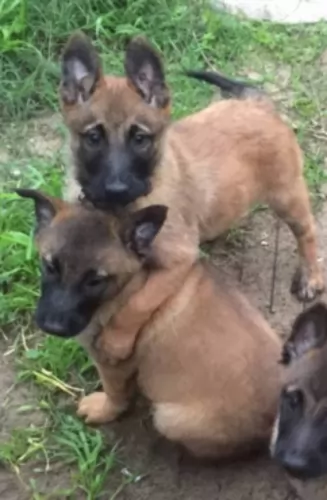 Belgian Malinois are generally healthy dogs. However every dog, regardless of breed, can pick up illnesses, and it is always wise to be aware of some of the diseases your Malinois might face.
Belgian Malinois are generally healthy dogs. However every dog, regardless of breed, can pick up illnesses, and it is always wise to be aware of some of the diseases your Malinois might face.
An inherited condition where the thigh bone doesn't fit properly into the hip joint. As the dog ages, arthritis can develop.
A degenerative eye disorder that can lead to blindness.
Brush his teeth at least 2 or 3 times a week to remove tartar build-up. Too much plague leads to inflamed gums, bad breath, pus inside the mouth and even loss of teeth.
 This dog, although extinct would have battled with common dog illnesses that can still be seen in the modern bulldog today.
This dog, although extinct would have battled with common dog illnesses that can still be seen in the modern bulldog today.
Brachycephalic airway syndrome is all about upper airway abnormalities and can be quite a problem in your Old English Bulldog because of the shortened muzzle of these breeds. These particular dogs have a smaller upper jaw and an overcrowding of of teeth and you will see that effort is required to inhale. They breathe more easily through the mouth then the nose. They have noisy breathing, particularly during exercise and in hot weather.
Dogs have 3 eyelids, and cherry eye is the term used for prolapsed nictitating membrane, or the 3rd eyelid, when the eyelid comes out of place and you get a pink mass. It is a common condition found in Bulldogs, a genetic problem where surgical intervention or medicine may be recommended.
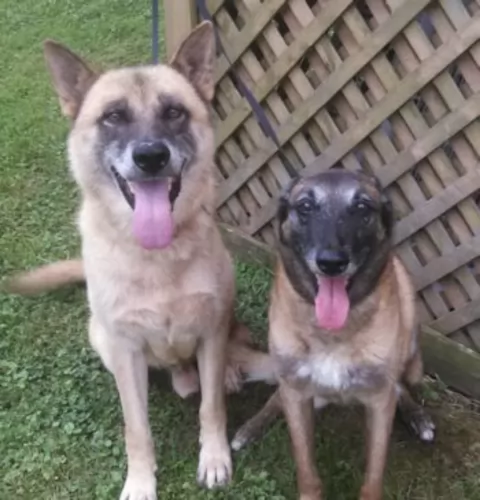 Because the Malinois is a constant shedder, with a couple of heavy shedding periods during the year, you’ll need to be conscientious with his grooming and brush him at least twice a week to get rid of loose hairs and to give his thick coat a glossy, healthy look to it.
Because the Malinois is a constant shedder, with a couple of heavy shedding periods during the year, you’ll need to be conscientious with his grooming and brush him at least twice a week to get rid of loose hairs and to give his thick coat a glossy, healthy look to it.
Because of their high energy, Malinois aren’t recommended for couch-potato type owners. It will be cruel to buy such a dog and to leave him to waste away with boredom and frustration in your back yard. He’ll want lots of rough and tumble, ball games, runs in the park or in the country and long walks.
Belgian Shepherd Malinois puppies are vulnerable when they’re tiny, and it would be wise to speak to your vet about superb nutrition to build up a puppy’s immune system.
An excellent way to ensure the health of your growing Malinois is to give him a home prepared meals along with commercially manufactured food recommended by your vet. You can’t just put a bowl of commercially manufactured dog food in front of him day after day month after month.
Apart from what your vet recommends, give him some brown rice, some cooked vegetables and some raw meat. Raw meat will ensure he can fight of skin infections. The age of the dog, emotional state and environmental influences can all play a role in skin diseases with dogs, but by ensuring some raw meat in his diet, the immune system is strengthened and skin disorders are eliminated. Always ensure a steady supply of fresh water.
 If the Old English Bulldog were still around today, you would have cared for him like you would most other dogs -
If the Old English Bulldog were still around today, you would have cared for him like you would most other dogs -
Feed your Old English Bulldog puppy 4 times a day with high quality puppy food.
At 6 months of age you can be giving your young dog 2 meals a day.
Commercially manufactured food is fine if its a high quality one. Always check out the top 5 ingredients on the packaging – the first 2 should be protein or meat. Follow a simple, consistent diet to minimize symptoms. Your adult dog can have kibble and sometimes you can add in chopped boiled chicken, brown rice and vegetables such as sweet potatoes, carrots and spinach. A little bit of raw meat can also be added to the kibble once in a while. Never leave your dog without a constant supply of fresh, cool water.
Even though the dog is extinct, dog owners of that time would have had to watch their dogs for ticks and fleas and any of the common dog illnesses of that time.
The dog would have had some kind of grooming – a brush down a couple of times and he would have been checked for ear and eye infections.